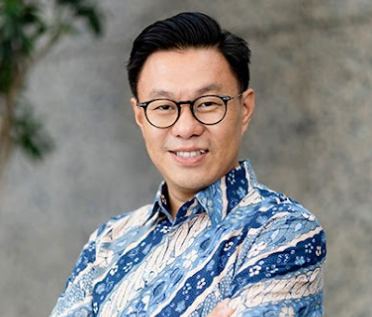
Indonesia's healthcare sector plays a crucial role in safeguarding the well-being of its people and communities. However, with a population of over 270 million spread across thousands of islands, ensuring equitable access to healthcare services is a significant challenge.
Indonesia’s healthcare industry needs more healthcare talents. The issue is that there are more medical graduates than available job opportunities in the healthcare sector, even in cities. Hospitals then exploit this supply and demand disparity to hire doctors as cheaply as possible to maximise profits, making this more unattractive for local graduates.
Existing doctors work double-triple shifts in multiple places, which can also result in stress and burnout. Many also choose to fly abroad and find better-paying jobs outside the country, resulting in doctor shortage issues in second and third-tier regions. This condition has an impact on the fulfilment of health talents to build this country’s health landscape to be on par with other developed countries and neighbouring countries in Southeast Asia (SEA).
According to the Ministry of Health of the Republic of Indonesia (MoH), the country requires over 160,000 doctors. At the same time, one of the healthcare reforms planned by the Minister, Budi Gunadi Sadikin, revolves around healthcare talent, among five others, in the 2020-2024 Digital Transformation Strategy. The strategy aims to transform the healthcare system into a more efficient, effective, patient-centred model.
In strengthening and improving healthcare talent, the MoH has also extensively supported health education through multiple scholarship programmes, which aim to support the equitable distribution of health workers. In the future, the government expects that all Indonesian provinces will have essential health services, such as heart disease treatments, by 2024.
The country's local healthcare professionals play a vital role in building the sector, providing essential expertise and knowledge to drive progress in improving overall healthcare quality for the country. They are positioned as the 'strategic force' that will “hold the fort” in Indonesia’s healthcare system.
Additionally, with more healthcare talents and an advanced healthcare system, we could prevent the high rate of deaths caused by non-communicable diseases and child mortality, as Indonesia is lagging in terms of life expectancy and healthcare spending compared to its comparable SEA benchmarks and global average, according to our recent white paper, 'Genomics: Leapfrogging into the Indonesian healthcare future'.
Key contributors to a strong healthcare ecosystem
Besides healthcare talents, other crucial elements also mould Indonesia’s resilient healthcare ecosystem with equitable infrastructure building and funding support. A collaboration between the government, conventional healthcare, digital healthcare players, and investors is needed.
COVID-19 has brought to light the urgent need to improve and strengthen Indonesia's healthcare services. Thankfully, the government has swiftly collaborated with both digital healthcare providers and conventional healthcare companies to develop and launch PeduliLindungi, now known as SATUSEHAT. This all-in-one digital health service provides COVID-19 patients with the convenience of remote consultations and doorstep delivery of their medications.
According to the East Ventures – Digital Competitiveness Index (EV-DCI) 2023, the SATUSEHAT platform has the potential to play a crucial role in achieving equitable healthcare access across Indonesia. The platform can help address the challenges of fragmented data and uneven healthcare infrastructure by facilitating data exchange and collaboration among healthcare providers.
Regarding funding support, as an investor, we at East Ventures are confident that having a head start in the sector enables us to help shape its future. We have been eagerly backing the sector through investments and several initiatives in breakthrough healthcare startups.
We have invested in over ten Indonesian healthtech startups with various focuses, from primary healthcare to genomics-focused startups, such as Nusantics and NalaGenetics, and our most recent investment, Etana.
Earlier this year, the Health Innovation Sprint Accelerator 2023 was launched, as an incubation programme for healthcare startups and innovators to advance the sector through innovation in health tech and biotech in Indonesia, where we provide a total of IDR 2.5 trillion grant funding for winners.
During COVID-19, we launched the Indonesia PASTI BISA (IDPB) programme and collaborated with our digital ecosystem players, including the Indonesian government to help the nation weather the crisis. Through the programme, the production of the first local test kit (IDPB Test Kit) was enabled as well as distribution of Personal Protective Equipment (IDPB Safeguards PPE) and oxygen concentrators (IDPB Safeguards Oxygen) to health workers and hospitals in Indonesia.
Indonesians have shown resilience and high digital adoption and literacy over the past decade. Many cases showed that health tech firms make the healthcare system more efficient and create solutions to cure diseases. Looking for an immense room to grow, we are preparing a dedicated fund to support the healthcare sector for a long-term target.
As the government invests heavily in healthcare infrastructure and digital technology, Indonesia's healthcare sector is ripe with opportunities for growth. We hope to empower and dedicate our support to Indonesia's talented healthcare professionals to take advantage of these opportunities. By fostering a robust healthcare ecosystem and nurturing skilled professionals, Indonesia has the potential to become a regional leader in providing effective health solutions that contribute to the country's overall economic development. Improved healthcare may also help alleviate poverty by shielding individuals from the burden of catastrophic healthcare expenses in the long term.
We can create an efficient, effective, patient-centred healthcare ecosystem by embracing and investing in local healthcare talents. East Ventures is committed to continuously supporting healthcare startups and working with the government to create a more sustainable healthcare system that delivers equitable access to healthcare services for all Indonesians.
This talent shortage concern is not news to Indonesia's healthcare and other digital sectors. Health and medical graduates are needed today, more than ever, to accelerate this development and the achievement of one of Indonesia’s major healthcare reforms. Hence, we eagerly call upon healthcare talents to seize this opportunity and join us in positively impacting society and helping to build a healthier Indonesia in the near future.
Willson Cuaca, Co-Founder and Managing Partner, East Ventures




